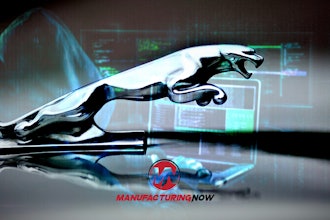A lot of progress has been made in improving military vehicle durability, especially in light of changing urban tactics where the enemy relies heavily on improvised explosive devices (IEDs) and mines. And while great strides have been made in ensuring soldier survival, their vehicle is typically out of commission - leaving them in a highly compromised position.
BAE Systems is trying to fix this problem, and they’ve taken inspiration from an interesting source.
The Ironclad Beetle, which is native to the southwestern U.S., is protected by a nearly indestructible exoskeleton. Typically, entomologists have to drill through their shells in order to examine them. This exterior is also self-healing, so any dents or cracks tend to repair themselves.
Instead of the glucose-based polymer found on the Ironclad Beetle, BAE is relying upon a titanium memory metal alloy.
If you’re not familiar with memory metals, they’re a complicated alloy with an internal composition that can automatically reform after suffering damage. They do this by either using a stimulant like heat or electricity, or the absence of such energy, which usually caused the damage, also allow it to resume its original shape.
Memory metal has been around since the 1960s, and is very popular in aerospace applications, electronics and even eyeglass frames. They’re not more widely used because they’re expensive, complex to produce, and these materials can only reform so many times before fatigue-induced cracks can form. So while these memory metals are stronger, there are durability concerns that need to be ironed out.
BAE engineers say that initial tests of a small-scale prototype have been successful, surviving five increasing powerful explosive attacks. Full-size vehicle applications are about a decade away.
Although it’s cool to see nature influencing technology, let’s hope these new vehicles don’t take on all of the Ironclad Beetle’s characteristics. You see, although they’re extremely well protected, they tend to simply tuck in their legs and play dead when disturbed. Not exactly what we’re looking for on the battlefield.





















